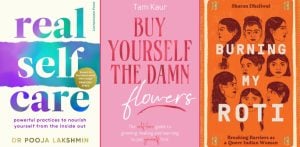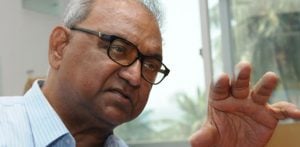"Half my family denies my depression."
Mental health is an important issue in Desi communities, yet it remains a sensitive topic shrouded in the shadows.
Despite growing awareness, discussing issues like depression or anxiety often carries a stigma.
Mental health issues are often viewed as a sign of weakness or a lack of resilience, leading to silence.
Socio-cultural expectations and beliefs, as well as community and family pressures, contribute to silence in, for example, Pakistani, Indian and Bangladeshi communities.
Accordingly, many Desi individuals can feel reluctant to seek support, and some conceal their struggles even when they are receiving help.
Experts stress the need for open conversations to break down misconceptions.
DESIblitz looks at why it is still taboo to talk about mental health in Desi communities.
Socio-Cultural Stigma and Family Honour

The concept of honour plays a significant role in why mental health discussions are taboo and why people may not seek professional assistance.
Families and individuals may fear that admitting and speaking about struggles could bring shame and mark them as weak.
Moreover, Dr Kasturi Chakraborti, based in India, stated:
“In South Asian families, collective well-being takes precedence over individual needs, with an emphasis on traditional values and conformity.”
There can be an expectation to “suffer in silence” or manage problems privately.
Mental health can be seen as a personal family matter that should not be spoken about with outsiders, even medical professionals.
In 2024, medical student Projit Kar wrote:
“There is an unfortunate, deeply entrenched stigma against mental health found in most South Asian cultures, often attributed to transplanted generational attitudes.
“Within my own ethnic community, the suggestion that a son or daughter may be affected by mental illness is often met with distress, denial and anguish, particularly due to the social implications that a diagnosis could have on the marriageability of that child or their siblings.
“This stigma is often internalised”.
“[F]amily members may be particularly concerned about the perceptions of other members of their community and the associated perceived degradation of their family name and honour.”
Despite increasing awareness and public campaigns, mental health continues to be perceived as a private or even shameful issue, leading many to suffer in isolation and silence.
The fear of social consequences—such as damaged reputations or reduced marriage prospects—highlights how entrenched these beliefs remain.
Lived Experiences of Stigma and Family Unease
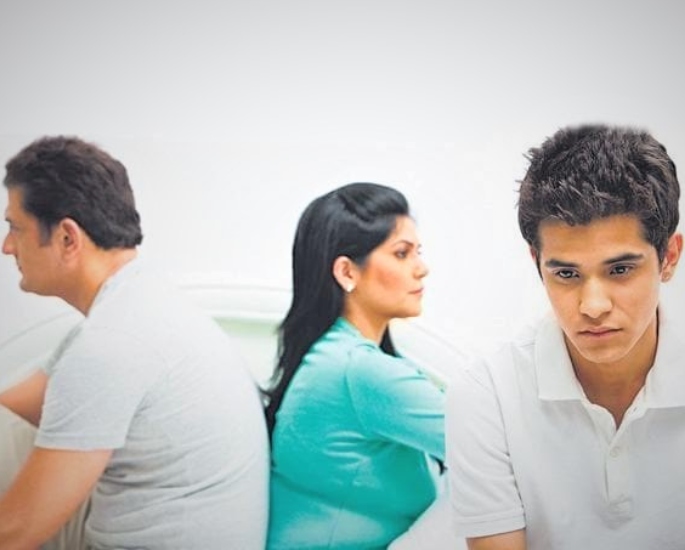
South Asians who have struggled with mental health report feeling isolated due to socio-cultural stigma, family shame, and discomfort.
Forty-five year-old Nighat* told DESIblitz:
“I’ve battled depression for years, but my family refused to acknowledge it. Even I did for a long time. My mother is embarrassed that I am on antidepressants.
“She hates that I will say it if someone in the family asks, but me saying it is part of the process of me trying to be well and cope.
“I felt alone for a long time until I found an Asian women-only community support group.
“The shame my family feel still impacts me. I tell people I trust that I am ill, but not everyone.”
In turn, 30-year-old British Bangladeshi Idris* revealed:
“I’ve had a lot of stuff to deal with, and it took me hitting rock bottom, four years before I willingly got help and talked.
“Talking to a counsellor, going on meds was weird as f***. No one in my family had done it, and there are family members who now I can see needed it.
“My grandparents and dad were worried about what the community, extended family would say, but mum put her foot down.
“Mum struggled to get it; it took time, but she was solidly in my corner.”
Nighat and Idris highlight the profound impact of socio-cultural stigma and family unease.
However, personal resilience in seeking support and support networks, such as community groups and family allies, can challenge these stigmas and facilitate conversations.
Mental Health through a Gendered Lens
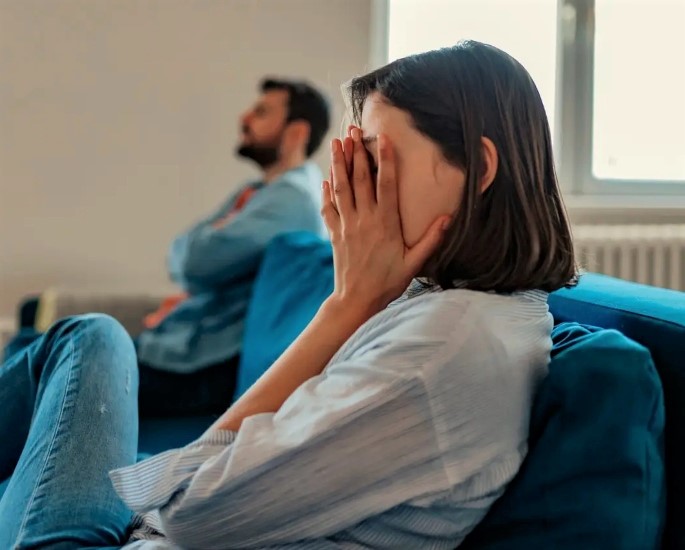
Socio-cultural expectations, norms and ideals prevent men and women from speaking for different reasons.
Research has highlighted that South Asian men are significantly less likely to seek therapy compared to women.
Cultural expectations of masculinity discourage vulnerability, often leading to suppressed emotions and untreated mental health issues.
Idris, reflecting on his experiences, said:
“My mum and me talk about my mental health and meds, it’s helped her think about her mental health.
“But dad and grandparents, no, they pretend it ain’t a thing.
“Dad saw it as a weakness at the start and thought my generation is a bit soft. Think that’s changing.”
“Tons more in the media now, and Asian celebs talking about it, but not all families and all parts of the community open to talking. At least from what I’ve seen.”
The idea of carrying on and putting the family first can also prevent individuals from seeking help and discussing their struggles.
One of the most common mental health challenges faced by women is depression. It is estimated that one in four women in the UK will experience depression at some point in their lives.
South Asian women are at a higher risk of developing depression due to various socio-cultural factors, including discrimination, societal pressures, and the burden of balancing multiple roles.
Nighat declared: “It just wasn’t talked about. A bit more now, but there is still silence, denial and gaps.
“Half my family denies my depression.
“For long time as a daughter, wife and mother I thought I should suck it all up and carry on, and not say anything.
“Raised to think you don’t tell these struggles to anyone; it’s a sign of weakness.
“And I thought no time, had too much to do, and a family to care for was priority. Didn’t realise looking after myself helped me look after them.”
Lack of Awareness & Understanding
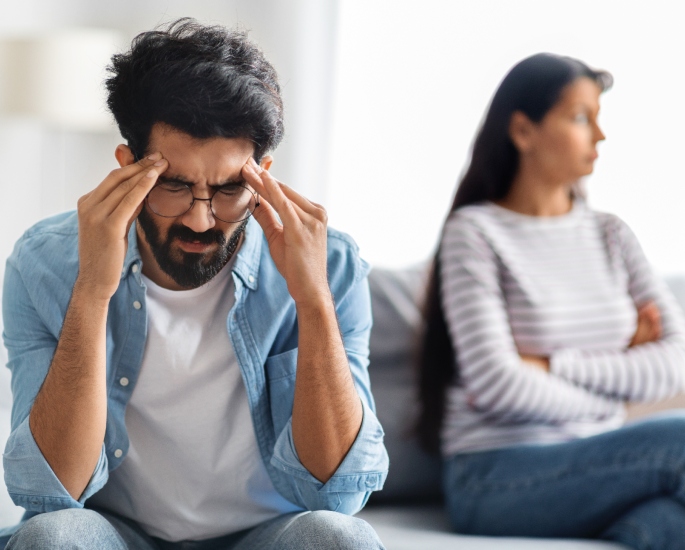
Significant strides have been made to raise awareness around mental health support, well-being and struggles in many countries worldwide. This can help prompt talking more openly about mental health.
However, in the West and in Asia, misinformation and a lack of awareness and understanding can exist within communities.
There are also generational differences in how mental health is perceived and understood.
Younger generations are more open to talking about mental health, yet some may still hesitate to challenge deeply entrenched beliefs.
Naila Karim, who identifies as Gen Z, wrote:
“The biggest problem within the South Asian community is the lack of understanding.
“I would say that the only generation that is definitely being taught the importance of mental health is Gen Z – bear in mind that I’m a part of this generation, and I didn’t really understand much about it until my 20s.
“A lot of older generations were not educated on the subject at all, meaning unless they had physical symptoms, mental health issues were pretty much overlooked.
“And since then, there’s also been this awkward and shameful stigma surrounding it.”
Some people can lack access to accurate mental health information.
There can also be misconceptions, such as the belief that mental illnesses result from ‘bad karma’ or supernatural forces.
Dr Shradha Malik, founder of Athena Behavioural Health, maintained:
“In India, mental health is often viewed through a lens of superstition, misunderstanding, and ignorance.
“Many people believe that psychiatric illnesses are a result of personal weakness, bad karma, or even possession by evil spirits.”
Religious interpretations can also shape attitudes. Some believe prayer alone can heal mental illnesses. While spirituality offers support, professionals stress that therapy and medical intervention are essential.
Community-led initiatives and professional advocacy can help destigmatise mental health, and this is happening.
For example, younger generations are more open to talking and seeking help in the UK.
However, there is also a need for greater conversations and acknowledgement of mental health struggles within Desi communities and families.
Factors that continue to make it taboo to talk about mental health, especially struggles, are social judgment, the fact it can be viewed as a weakness and its perceived impact on marriage prospects and the family name/honour.
Breaking this taboo requires open conversations, education, and culturally sensitive mental health resources.
Mental health organisations, support groups, social media discussions, and educational workshops are encouraging more South Asians to seek help and talk.
Normalising discussions is helping dismantle harmful stigmas in some spaces, but much still needs to be done.
Organisations like Taraki and MIND and platforms like The Asian Mental Health Collective (AMHC) continue working to shift perspectives.
Talking about and seeking mental health support should be seen as an act of strength, not weakness.
As the taboo is dismantled, more South Asians will feel empowered to prioritise their mental well-being and talk about it without fear of judgment.





